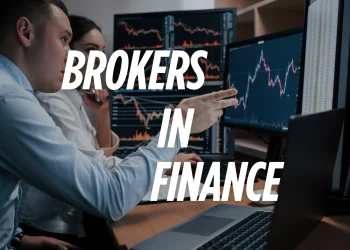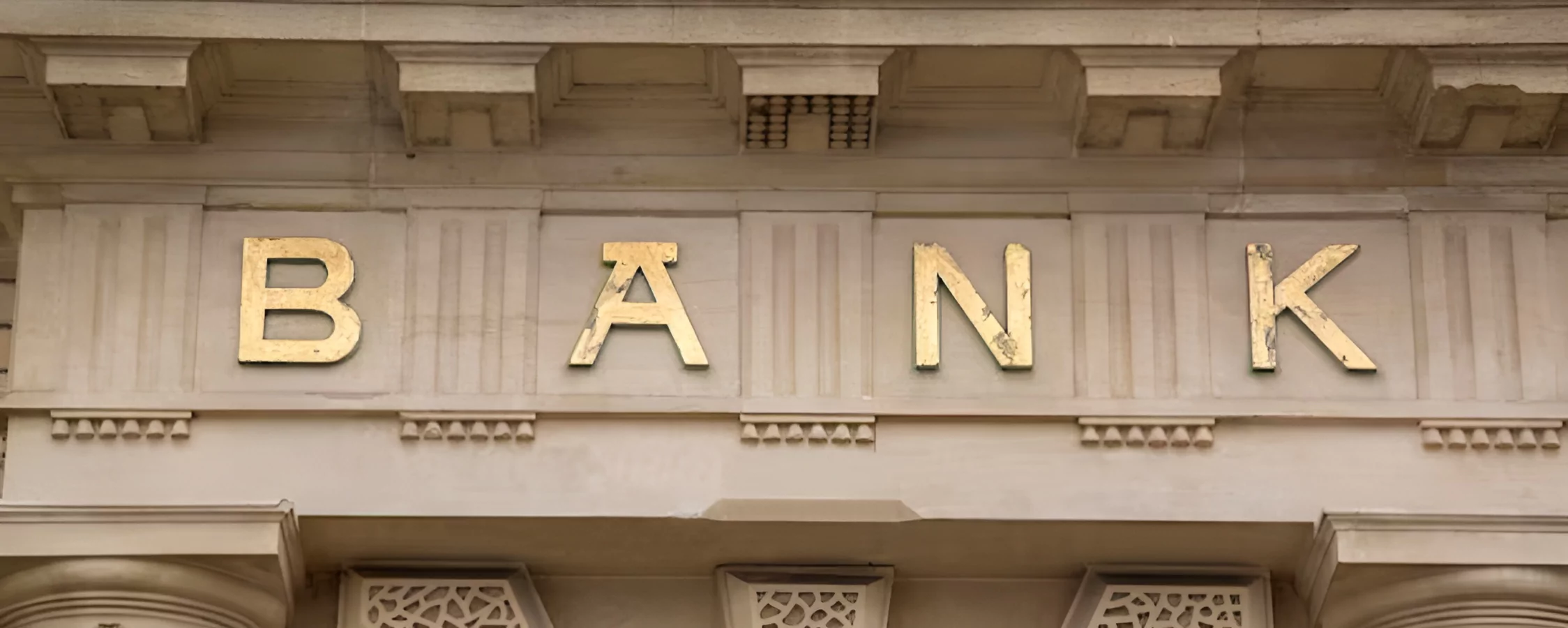Around 73% to 95% of traders lose capital while trading forex. After hearing this you may reconsider trading forex at all. However, losing capital isn’t that bad if you make more positive trades to cover them. Most of the reasons that cause traders to lose capital can be identified and fixed one way or another. This article will help you understand those reasons so they won’t affect you the next time you trade.
Before Starting Let’s Briefly lay out the reasons we are going to discuss:
- Not enough Capital
- Weak Risk Management
- Poor Knowledge
- Not Having A Strategy
- Fear taking Control
- No Adaptation
- Wrong Expectations
- Too Much Trading
Why Traders Lose While Trading
The statistics clearly show that the foreign exchange market is by far the biggest financial market in the world. According to data, there were daily trades worth an average of $5.1 trillion in April 2016. The popularity of forex trading may also be seen from this number. Which represents a significant increase from the $4 trillion announced, on average, per day in April 2010. We constantly hear tales of traders getting their fingers burned since more and more people than ever are trading forex. The causes of this are fairly obvious; as many traders don’t comprehend the forex market, they repeatedly make the same errors.
The main reason why most traders lose capital is that they just fail to comprehend the larger picture. Fortunately. The following information is something you’ll want to memorize since it will help you avoid those mistakes, solve the main reason you might be losing capital, and put you back on the path to successful forex trading.
Not enough Capital
The majority of traders are aware that a return on their investment requires capital. Being able to take advantage of highly leveraged accounts is one of forex’s largest benefits. This means that traders with small initial capital can regardless make significant gains (or losses, depending on the case) by betting on the value of financial assets.
If an effective risk management plan is in place, it practically makes no difference whether a significant investment base is obtained through the use of large leverage or a big initial investment. Taking steps to guarantee the investment base is good enough is crucial in this situation. The trader’s opportunities for long-term sustainability are considerably improved by having enough capital in their trading account. This also reduces the emotional stress that comes with trading.
As a result, traders can risk only a small portion of their overall investment per trade and yet make a practical return. Then, how much capital is sufficient? Learning how to prevent yourself from losing capital when Forex trading because of poor account management is crucial at this point. Any broker may offer a minimum of 0.01 lots for trading in forex. One thousand units of the base currency that is being traded make up this unit, which is also referred to as a micro lot.
Small deal size is not the only approach to reduce your risk. Both inexperienced and professional traders should give careful consideration to where to establish stop-losses. Beginner traders should generally limit their risk per trade to a maximum of 1% of their capital. Trading with more capital than this raises the possibility of suffering big losses for new traders.
An excellent strategy to make sure an account has plenty of capital for the long term is to carefully balance leverage while trading lesser volumes. One micro lot deal for the USD/EUR currency pair, for instance, would only take a $250 investment on an account with a leverage of 1:400, risking a maximum of 1% of the total capital. Higher leverage, however, also raises the amount of capital that can be lost in a trade. In this example, compared to placing the same trade on an account with 1:100 leverage, overtrading an account with 1:400 leverage by one micro lot can quadruple the possible losses.
Weak Risk Management
One of the main causes of Forex traders’ tendency to lose capital quickly is poor risk management. Trading platforms are outfitted with automatic take-profit and stop-loss features for a reason. A trader’s chances of success will be considerably increased by mastering them. In addition to being aware that these mechanisms exist, traders must also understand how to use them correctly in light of the levels of market volatility expected for the time frame and for the deal’s duration.
Remember that a stop-loss too low could kill a position that could otherwise have been lucrative. In the meanwhile, a lack of volatility could prevent a “take-profit too high” from being reached. A crucial component of effective risk management is paying attention to the risk/reward ratios.
The Risk/Reward Ratio is a standard measurement that traders can use to determine how much capital they will make or lose if a trade proceeds as expected. Think about this particular scenario. The risk/reward ratio is 2:1 if your “take-profit” is set at 100 pip and your stop-loss is at 50 pip. This would mean that, if all of your trades are positive, you will at least break even on every third one. In order to make sure they align with their goals, traders should always verify these two variables together.
Poor Knowledge
You need to understand the market in order to be lucrative, just like it is with any other type of business, whether you are buying or selling goods or services, trading futures, or trading on the forex market. This can be achieved by first studying the forex market and the different strategies that traders use.
Then you can test out these strategies by opening a demo account and using them one by one. When that is done you can open a real account and start. Always remember to invest what you can afford to lose, so always start small. After getting familiar with the market, push yourself to improve more and perform better. Failure ultimately occurs because people never take the time or make the effort to achieve their best.
Not Having A Strategy
Making and sticking to a trading plan is the first step to success, regardless of whether you trade forex or not. For any form of trading, the saying “Failing to plan is planning to fail” holds. A successful trader operates on a written strategy that details risk management guidelines and the anticipated return on investment (ROI). Investors can avoid some of the most common trading hazards by sticking to a strategic trading plan; if you don’t have a plan, you’re limiting your potential in the forex market.
Fear taking Control
A trader needs the appropriate mindset in order to be successful; an excellent trading system and all the technical and analytical resources required for success in trading are not enough. Only by learning to control emotional reactions while trading in all different circumstances will this be possible.
Fear is an emotional reaction that can negatively impact a forex trader by preventing them from taking action. When a trader is in a losing position and finds themselves frozen in place while the market continues to move against them, this can be very harmful.
This kind of reaction could prevent a trader from seizing a trading opportunity by moving against their very own trading strategy and letting fear rule instead of their strategy.
Another type of fear that might occur while trading typically follows a losing trade. The forex trader can be too terrified to enter the market again. Regardless of a chance to recover the capital loss on the prior trade, due to a lack of confidence brought on by the losing trade.
Fear can sometimes make someone leave a lucrative position earlier than is required. Potential benefits disappear and you are less able to withstand unavoidable losses for as long. It’s crucial to be able to endure these setbacks for a sufficient period so that your advantages outweigh them.
No Adaptation
An additional explanation why Forex traders lose capital is believing that a single tested trading technique can generate an unlimited stream of successful trades. Markets change throughout time. They couldn’t have been traded if they were. A trader needs to learn how to track these changes and adjust to any situation that may arise because the markets are constantly changing.
The good news is that new trading opportunities as well as new risks are presented by these market movements. A clever trader appreciates change rather than fears it. A trader should get familiar with monitoring average volatility in response to financial news releases. Also being able to tell a trending market from a range market, among other things.
Trading performance can be significantly impacted by market volatility.
Market volatility can last for hours, days, months, or even years, so traders should be aware of this. Many trading methods can be thought of as volatility-dependent, and many of them perform worse during unpredictable times. Therefore, a trader must always ensure that their technique is compatible with the volatility that occurs in the current market environment.
Even if a chosen strategy doesn’t rely on fundamentals, financial news releases are nevertheless vital to monitor. Market sentiment may vary between traders in response to changes in monetary policy, such as a change in interest rates, or even unexpected economic statistics related to the unemployment rate or consumer confidence.
There is bound to be an effect on the supply and demand for the relevant currencies when the market responds to these developments. Last but not least, traders frequently use the incorrect trading tools at the incorrect times as a result of their inability to differentiate between range and trending markets.
Wrong Expectations
Two main categories of traders are drawn to the forex market. The first category includes people who work in the stock market and other financial markets. To increase their capital or search for better trading circumstances, they switch to Forex. Retail investors who are making their first trades and have never done so before make up the second category. Given their earlier achievements, it seems natural that the first group had considerably higher success in forex trading.
They can respond to questions from beginners like, “Why do Forex traders fail?” and “Why do all traders fail?”. In terms of success, skilled traders typically have reasonable expectations. This strategy prevents them from price chasing and from going beyond the trading guidelines of their particular method, both of which are rarely successful. A good deal of the tension associated with trading can also be lowered by having realistic expectations. Some rookie traders may experience emotional loss during a losing deal, which can lead to a string of poor decisions.
Beginners should be aware that trading forex is not a quick way to become wealthy. Like in any business or professional job, there will be times of hope and despair as well as risk and loss. By minimizing their market exposure with each trade, a trader can have confidence that their long-term success won’t be damaged by one bad deal.
Remember that your biggest friends are persistence and consistency. Traders don’t need to make significant returns from a single or a few large trades. This just serves to support bad trading habits and can ultimately lead to significant losses. The greatest approach is to achieve good compound outcomes with few trades over several months and years.
Too Much Trading
An additional explanation why Forex traders frequently experience financial loss is trading addiction. Chasing prices is something they do that professional traders never do. Exciting things can happen when you trade currencies. The market can move quickly and pump you full of adrenaline because of its volatile currency pairs and short-term trading periods. If the market shifts in an unexpected way, it can also lead to an awful lot of stress.
Traders must enter the forex market with a well-defined exit plan in place to prevent this situation from occurring. Chasing the price is the reverse of this approach and is more appropriately referred to as gambling than trading because it involves entering and canceling trades without a plan. Contrary to what some traders might want to think, they have almost no power or effect over the market. The maximum amount that can be purchased from the market will occasionally be fixed.
When these circumstances happen, wise traders will realize that some actions are not worthwhile pursuing and that the risks involved with a specific trade are too high. It is now appropriate to stop trading for the day and preserve the balance in your account. Tomorrow’s market will remain open, and new trade possibilities can emerge.
A trader will get closer to realizing a higher percentage of successful deals the sooner they begin to view patience as a skill rather than a flaw. Contrary to popular belief, there are instances when staying out of the market is the ideal strategy for making capital as a Forex trader.
Conclusion
Forex Traders lose capital if they are not careful enough. However, most of the reasons why forex traders lose capital can be identified and therefore avoided. Some of these reasons are a lack of knowledge, wrong expectations, insufficient capital, and many more. To be successful in trading you must identify your weaknesses and work on them.
The problem with forex trading today is most traders expect to enter the market and make huge returns instantly. In reality that isn’t possible. Real traders have a strategy and appropriate risk management while slowly collecting returns and dealing with some losses along the way. Eventually, it will pay off and then you will become a successful trader and have the funds to prove so.












